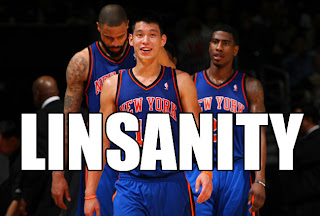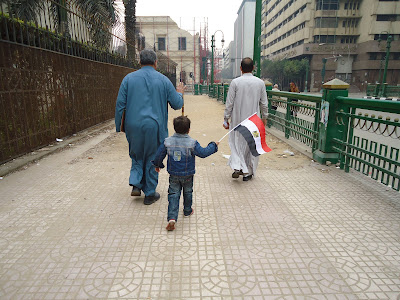 |
| Students breaking for lunch in Maadi, Cairo |
A new apartment and a new neighborhood. Perhaps it is my illusion, but the muezzins of each mosque seem to project their calls to prayer in a different rhythm, with a subtle but distinct interpretation. I find these appeals to worship rather soothing, a bit like the Gregorian chants.
After a week of searching I am finally moved into a proper apartment. To be able collect something without searching my entire backpack - what a luxury!
Though I remain in Cairo, my new neighborhood is a world away from Tahrir Square, the location of my former hostel. The city center is rowdy, full of pedestrians, taxis and buses, protestors, the homeless, and the heavy presence of security forces; my new home in Maadi is relatively peaceful, the home of embassies and expatriate havens like the ACE Club and the British Community Association.
I remain conflicted about these expats' clubs. It is good to have a few pints, relax, and watch 6 Nations Rugby. However, I am not in Egypt to pass my time with Americans and Europeans, but to conduct my inquiry on an Egyptian subject. Moreover, while I understand the desire to feel at home, club prohibition of the hijab struck me as odd. What if a person is American or French but would like to preserve her accustomed sense of modesty? That club policy seems to me as illiberal as the comment of a Salafist member of parliament, who demanded that an al-Ahram reporter veil herself prior to speaking to him.
# # #
 |
Toledo craggy and sorrowful. Glory of Spain and the light of her cities. *
|
 |
| San Roman Church, Toledo |
Just a little over two weeks ago, I was in Madrid and Toledo for four days. Partly to relax but also curious about Toledo's heritage as a city of all three Abrahamic faiths, I went to the former taifa and Castilian capital. First under al-Mam'un (King of Toledo 1043-1075), then Alfonso the Brave (King of Galicia, and Castile and Léon 1072-1109), it was in Toledo where Peter the Venerable commissioned the first translation of the Qur'an into Latin. Until Ferdinand and Isabella's abrogation of Granada's 1492 treaty of capitulation, Christians, Jews, and Muslims in Spain were largely free to practice their faith and speak their preferred tongue. Some even claim that Cervantes was no author of Don Quixote de la Mancha, but merely the promoter of an earlier Arabic work.
 |
| Synagogue Maria la Blanca, Toledo |
What beauty the Toledo of the past created! San Roman, a church built well after the reconquista, is decorated with Arabic calligraphy and Christian icons; some swear that the horseshoe arches and the decorative arts of Maria la Blanca and the Synagogue of el Transito (Sinagoga del Tránsito) resemble the architecture of the Great Mosque of Cordoba or that of the Umayyad Mosque in Damascus.
* I hope my translation is faithful to Cervantes' original words. It was "Toledo peñacosa pesadumbre. Gloria de España y luz de sus ciudades".




























